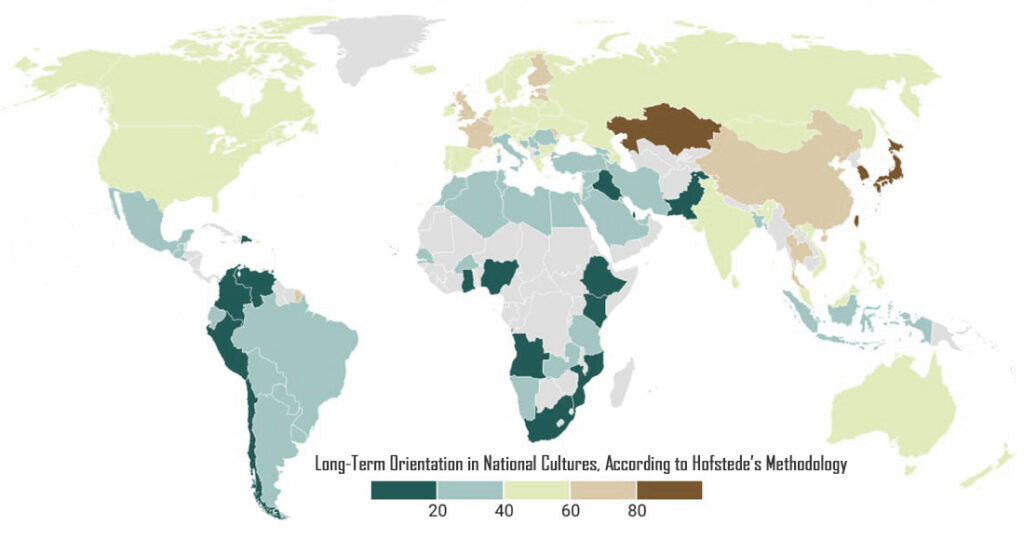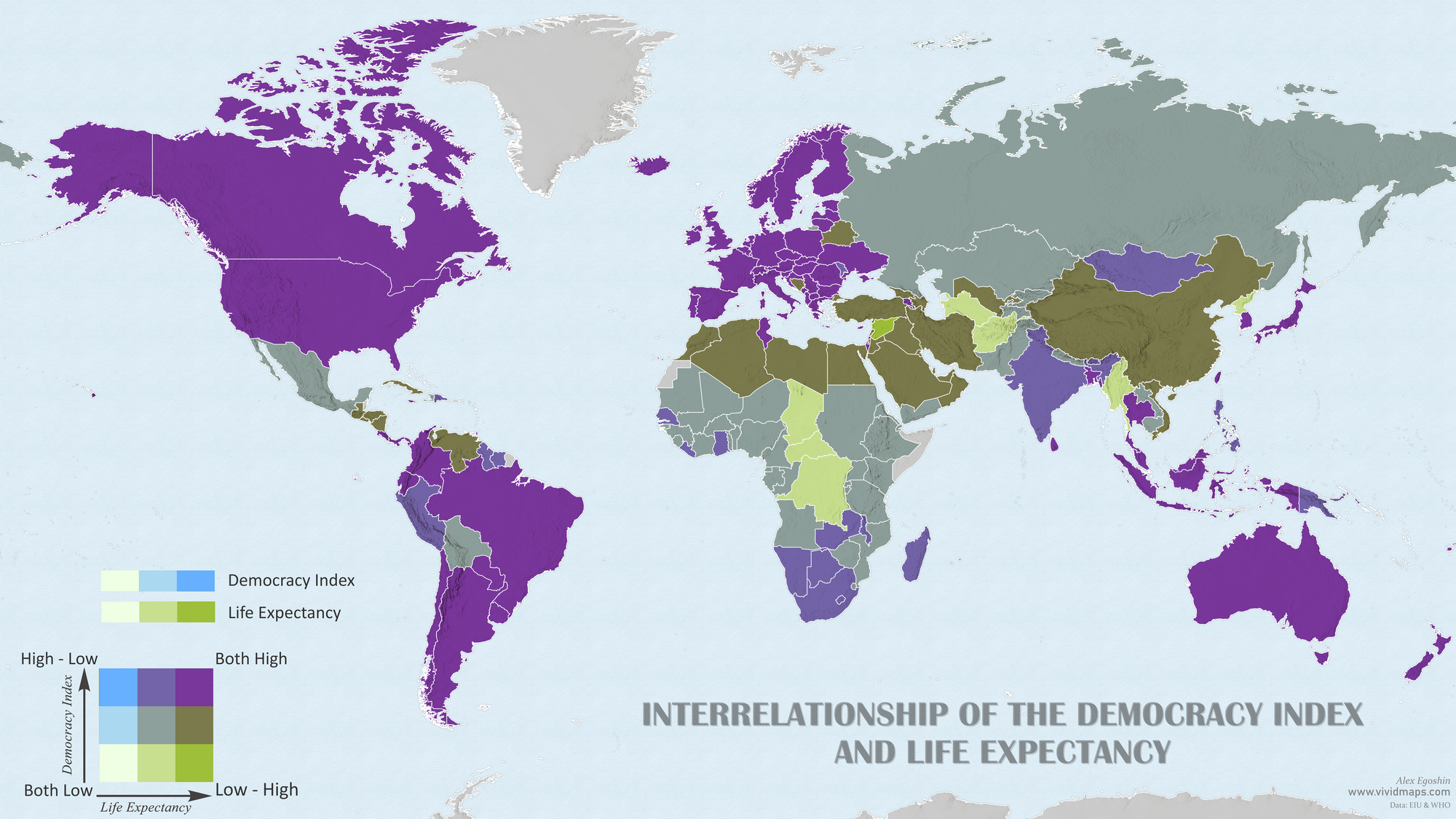Long-Term Orientation in World Cultures
Some countries tend to think far into the future, building plans meant to last for generations. Others prefer to work with shorter timelines, focusing on results that can be seen sooner. Dutch researcher Geert Hofstede studied these differences and called this cultural trait Long-Term Orientation.
The world map below was made using data from Hofstede Insights’ country comparison tool. Each country has a score between 0 and 100. A higher score points to a cultural habit of setting long-range goals, saving for the future, and adjusting traditions if that helps in the long run. A lower score suggests a stronger pull toward keeping traditions as they are, valuing quick outcomes, and solving today’s problems before worrying about tomorrow.

Hofstede’s work started in the 1970s, when he analyzed surveys from IBM employees in dozens of countries. Over time, he expanded his research, creating a framework that looks at several aspects of cultural differences, with Long-Term Orientation being one of them. It’s not a measure of whether one country “plans better” than another—it simply reflects what people in that society tend to see as normal when making decisions.
East Asia leads the scale. China, Japan, and South Korea all have high scores, showing a cultural habit of thinking decades ahead. Kazakhstan also ranks high, influenced by both its Asian roots and its history of contact with European planning traditions.
In much of Africa and South America, the scores are on the lower side. Here, everyday life can be shaped by political change, uncertain economies, or the need to respond quickly to what’s happening now. In those circumstances, it’s understandable that people often focus on the near future, even though long-term plans still exist when the situation allows.
Europe, on the other hand, lands somewhere in between.








